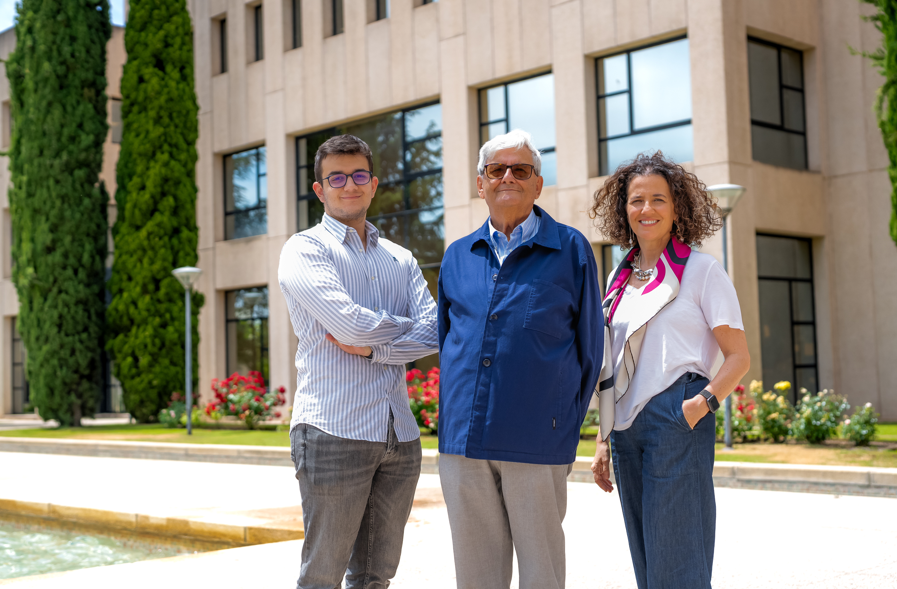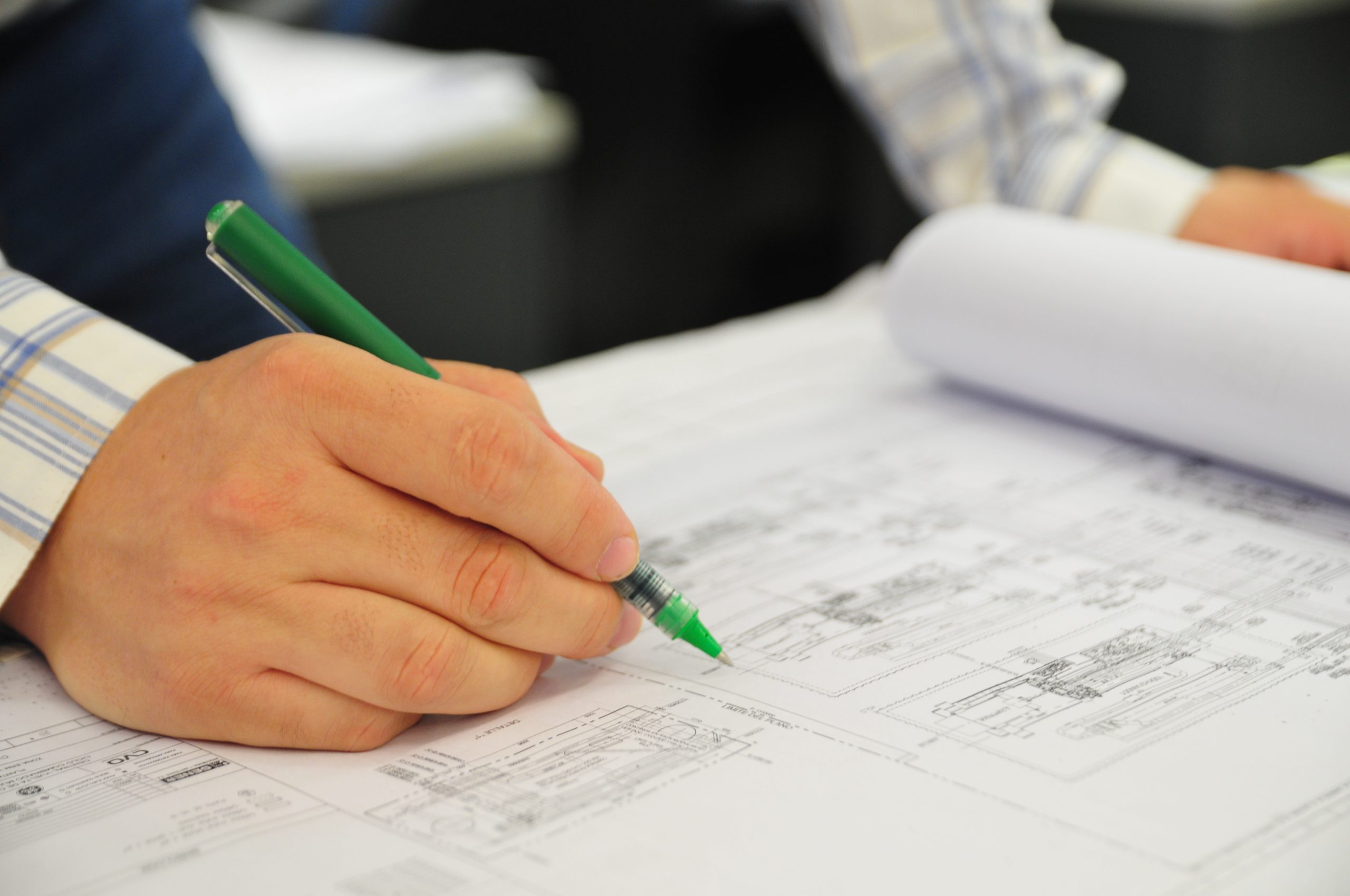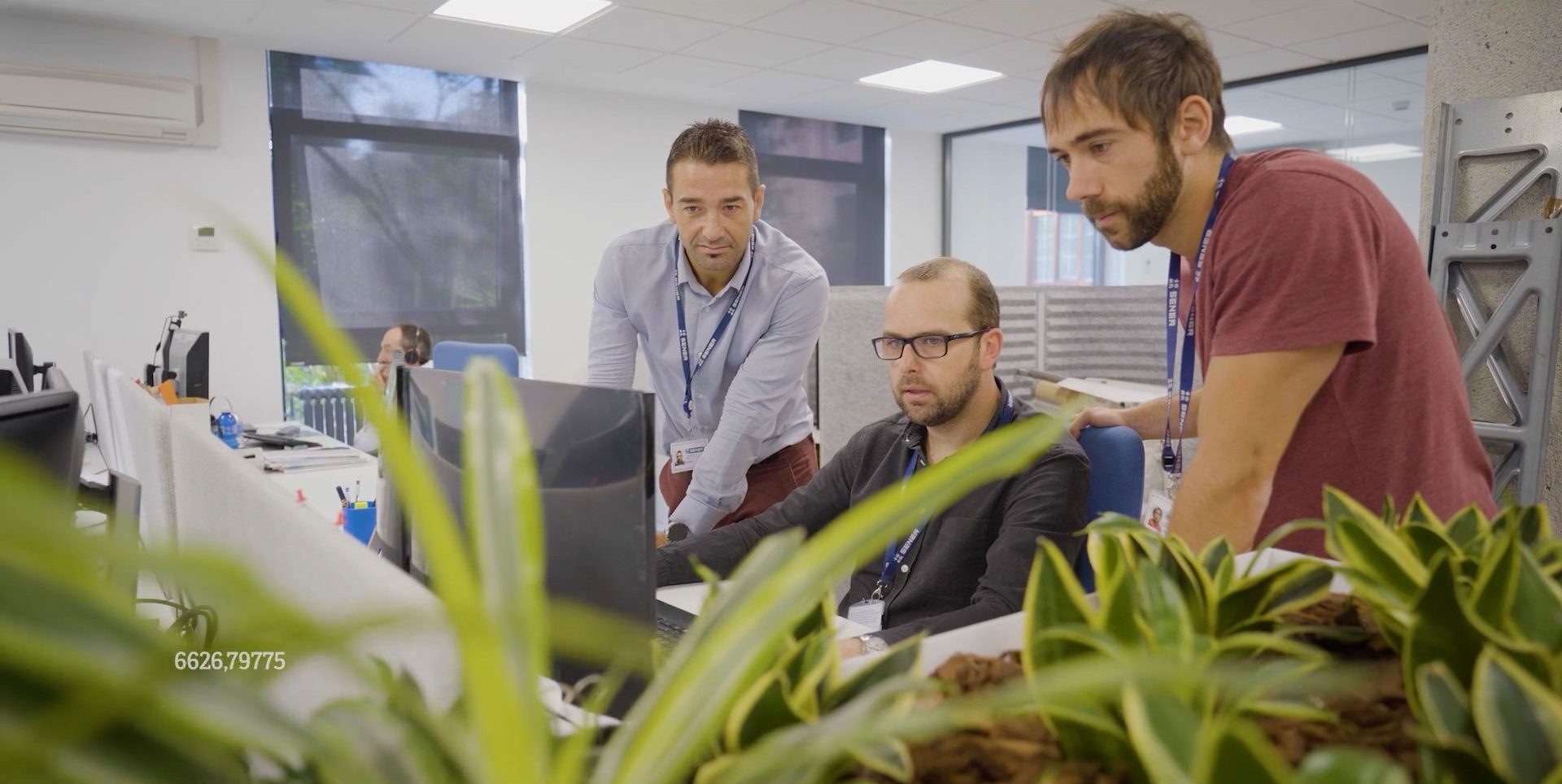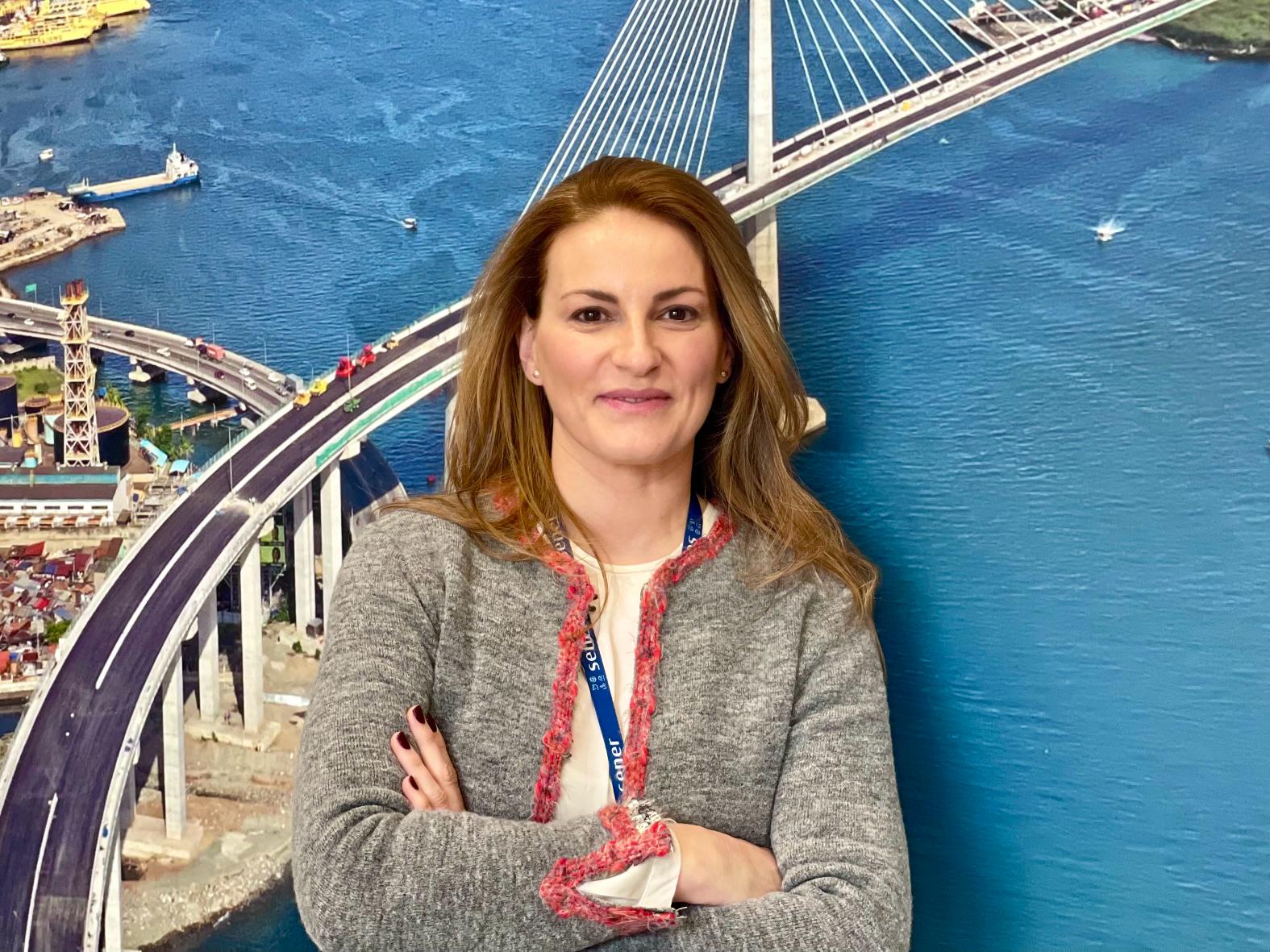
Cristina, could you tell us how you joined Sener?
I learned about Sener through my father and my cousin, both of whom worked at Sener, and also because I was working in the aerospace engineering sector. It was my cousin, Silvia Díaz, who told me about some interesting projects they were starting. These were innovative and ambitious projects, which sparked my interest. The idea appealed to me, so I decided to take the plunge and join Sener, and I haven’t looked back since.
What does it mean to you to have followed in your father’s footsteps in this company?
In a way, it made the initial period in the company, when I joined, quite easy. He was a beloved and appreciated person, and perhaps because of the way people are at Sener, they often extended that warmth to me. They still do. It’s a precious thing, a luxury.
Is your activity similar to your father’s?
Despite the evolution of technologies and the transformation the company has undergone in recent years, it is quite similar. We are both dedicated to developing solutions in the aerospace and defense industry, with a strong focus on avionics solutions. Even with many changes and technological advances, the essence of our work remains the same: to innovate and create solutions that make a difference in the aerospace and defense industry.
In your opinion, what are some family values and traditions that can be extrapolated to the work environment?
Without hesitation: honesty, integrity and the value of commitment. Commitment not only to the project, but also, and more importantly, to people. Commitment to and from colleagues drives us to work together, strengthen teams, and achieve common goals. I believe these values have been transmitted and are reflected in Sener’s culture.
What advantages do you see in working in a company that has been family-run for several generations?
Probably that values are better transmitted, that they are conceived as the cornerstone of a company’s culture and, perhaps, that the commitment and interest or care for people permeates at all levels.
Can you share any anecdote or experience that highlights some pros of working in the same company as other members of your family?
There are many anecdotes that I’m sure I wouldn’t know how to convey exactly, but without a doubt I’d say that it means hearing people talk about my father and my cousin, who built their professional careers at Sener. I enjoy hearing what people say about them, how they say it, and the affection and appreciation they convey. It is touching and a privilege.
How do you manage the dynamic between family and professional relationships at work?
I feel very fortunate to share part of the profession with them. On a day-to-day basis, this dynamic flows naturally. We maintain clear boundaries between the professional and family sides, which makes it easy. Anecdotally, my father, at over 80 years old, is still interested in what we do. He asks about Sener, our work, the changes, and the people he knows.
What do you expect from our company’s future and how do you see yourself contributing to its continued growth and success?
I expect Sener to be ambitious in the projects it undertakes. That this ambition applies to technological solutions, but also to people and to the legacy and significance we want to leave in the world around us and in society. As an example, I am very encouraged to see how the use of AI is being promoted in many areas of business, with initiatives such as the IA Lab. AI will change how we do engineering, and Sener’s strong commitment to this technology as an asset for the future of our engineering is exciting.
From an organisational perspective, I believe all achievements are based on teams. Our challenge in large, ambitious projects will be to build cohesive groups with shared goals, speaking with one voice and expressing team spirit. To do this, we must foster a context that builds values. I believe I can contribute through effort, commitment, generosity, and a strong awareness of the importance of the team.
As I see the future, where we have large and ambitious projects, our challenge will be to build cohesive groups with shared objectives.
Inocencio, how did you start at Sener?
I began my career at INTA, where I worked for years and knew Álvaro Azcárraga [former Head of Space at Sener and an eminence in the field] well. It was Álvaro who told me about Sener and brought me to the company.
The beginnings were somewhat complicated, not so much because of Sener, but because the space industry was just taking off in Spain. It was a field with great uncertainties, with the foundations of the aerospace industry still being laid in our country at all levels. This was reflected in the projects we tackled.
What were some of the biggest challenges you faced in your career?
The biggest challenge, which was a shared one, was starting Sener’s trajectory, first in the space industry and then in the defense industry. The second challenge was related to the size of the projects Sener was tackling in those years: they were getting bigger and required a more global, industrial vision.
How do you think being a family business has influenced the company’s growth?
It has successfully transmitted values across different generations, permeating not only people but also engineering and projects.
What advice would you give to someone just starting their career in this company?
The company has grown and evolved enormously and positively since I left. I don’t see myself giving advice for Sener today—it would be presumptuous of me to do so.
Values have been passed on to different generations, permeating not only individuals but also engineering and projects.
Ignacio, what motivated you to join our company and what do you hope to achieve here?
I enjoyed my experience as an intern at Sener. I was also motivated by what I heard at home from my mother and grandfather.
What skills or knowledge would you like to develop during your time with us?
I am interested in learning about solutions and technologies related to AI applied to industry. Artificial intelligence is a constantly evolving field, and I believe it has incredible potential to transform industry.
How do you think we can improve our work environment to better support young employees?
In general, flexibility is very important: in working hours, holidays, and teleworking. Much of this is already covered at Sener with teleworking options, S-Reward, and flexitime. I also believe it’s essential to focus on using emerging technologies in our day-to-day work, such as more connected work environments and the use of AI as a tool in development and engineering, beyond AI applications themselves.









